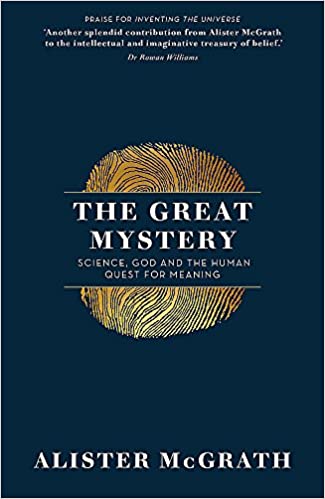A Brief Book Summary from Books At a Glance
About the Author
Alister McGrath is a distinguished Christian professor, author, theologian, and philosopher. He is the author of numerous important books and articles.
Introduction
This book examines the human quest for meaning, significance, and purpose in the universe. McGrath brings together theological, philosophical, and scientific elements to help the reader understand the strength of the Christian answer to the question of human meaning. He explores the human capacity for wonder and discovery and identifies signposts that point to God.
Table of Contents
Chapter 1 Born To Wonder: Asking Questions; Hoping for Answers
Chapter 2 Who Are We? Wondering about Human Nature
Chapter 3 Human Identity: Mapping the Landscape
Chapter 4 Pilgrims Seeking a ‘Big Picture’: The Balcony and the Road
Chapter 5 Searching for Meaning: Why We Need More Than Just Facts
Chapter 6 Meaning: Discovery or Invention?
Chapter 7 When Meaning Fails: Doubt, Trauma, and Disbelief
Chapter 8 Wondering about Nature: The Imaginative Roots of Science
Chapter 9 At Home in the Universe? Wondering about Our Place in the Cosmos
Chapter 10 What’s Wrong with Us? Why We Need the Idea of Sin
Chapter 11 Humanisms: Secular and Religious
Chapter 12 The Myth of Progress: Reshaping Humanity
Chapter 13 Endings: Some Brief Musings
Brief Book Summary
Chapter 1: Born to Wonder: Asking Questions, Hoping for Answers
We do not decide to be born, but we are given the gift of life. Human beings continually wonder and explore, trying to determine the reason and point of their existence. At times in the twentieth century, people were hopeful and optimistic for the future. Major crises and wars diminished this feeling, and today many seem disillusioned. Professional philosophers no longer engage with the question of the meaning of life, but many regular people continue to do so. One of the hallmarks of human experience is being overwhelmed by beauty and majesty in nature. This experience seems to point beyond the natural world to something greater.
Wonder is what pushes us to think and explore. Science can teach us many things, but it doesn’t lead us to the answers of meaning and purpose. We require more than what empiricism can show us. Science helps us understand part of the big picture, but it can’t show us everything. There are other sources of wisdom we need. Religion is a dominant cultural force in the world, and it is in religion that people find morality, meaning, and transcendence. This doesn’t mean that belief in God is right, but it does mean that it is natural and human. We need to synthesize the knowledge we’ve gained across disciplines.
Chapter 2: Who Are We? Wondering about Human Nature
It is natural and human for us to desire to love and be loved, to be special, and to live meaningful lives. Freud argued that the discoveries of Copernicus, Darwin, and himself had shown human beings that they were not as special as they once thought, and that they were not as in control as they had believed. Today in Western culture, some are trying to reduce human beings to molecules. Despite the popularity of this reductionism, there are even many atheist scientists who recognize that human beings are categorically different than animals.
Human beings are complicated and multifaceted. Two people on opposite sides of a mountain may either see a grassy slope or a rocky face, but both of their perspectives describe the same object; they need to be combined. We do have neurons, and we are made of DNA and molecules, but this is not all that we are. Dawkins and others are continually presenting part of the picture as if it is the whole. Some naively believe that anthropology can tell us everything about human nature, but anthropological studies, methodologies, and answers change over time. Anthropology is helpful but hardly infallible. Human beings are social creatures and need to be understood in terms of relationships. We need to look at ourselves from multiple levels and avoid reductionism. . . .
[To continue reading this summary, please see below....]The remainder of this article is premium content. Become a member to continue reading.
Already have an account? Sign In
